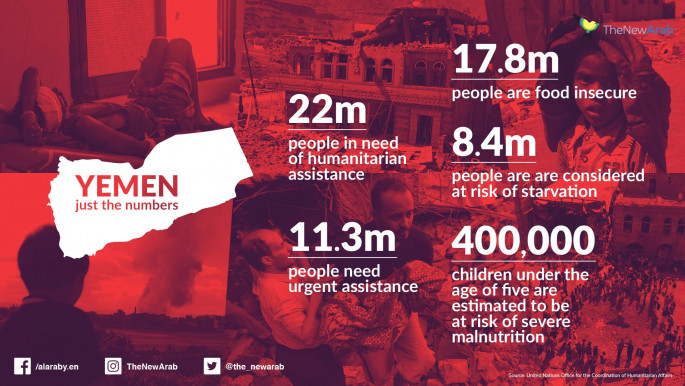UAE building up huge militia army ‘to undermine Yemen government’
Another aim of the militia army will be to undermine the authority of the internationally-recognised government led by Abd Rabbo Mansour Hadi, The New Arab's Arabic-language daily reported.
The UAE, a vital ally in the Saudi-led coalition waging the conflict in Yemen, is already pulling troops and equipment from near the port of Aden and the Red Sea coast area, in order to focus security efforts closer to home, where tensions between Iran and the US remain jittery after a series of tanker attacks, one of which was carried out in an Emirati port.
Read more: Yemen in Focus: UAE 'retreats from conflict' to protect its own borders
Military and government sources in Yemen have revealed to The New Arab’s Arabic-language service that the UAE have been funding and equipping militias belonging to the secessionist Southern Transitional Council in order to install pro-Emirati factions in areas seized from Houthi control.
The UAE, who supported the establishment of the Southern Transitional Council in 2017, has led a drive to form dozens of military brigades and several military hubs across southern Yemen in recent months.
These initiatives have angered the Hadi government who see this as an attempt by Abu Dhabi to usurp control from the legitimate Yemeni leadership.
Twitter Post
|
The newly established brigades have been concentrated in areas that formerly surrounded the North-South Yemen border prior to its unification in 1990, including the provinces of Lahj, Aden, Dhali, Abyan and Yafa.
Sources close to the Southern Transitional Council leadership revealed that the UAE directed them to form a parallel army to that of the Hadi government, consisting of between 25 and 35 brigades based in southern Yemen, which it fully supports and readily arms.
Each brigade consists of around 1,500 troops, meaning the militia army may be 52,000-strong.
In context, government forces are said to number around 200,000, however many suspect these figures are inflated.
Abu Dhabi has also entrusted a team of Emirati officers and members of the Transitional Council to head up the efforts in southern Yemen, according to the sources.
The militia brigades have been ordered to take control of the southern provinces and their resources, in order to secure former border areas while expelling government forces from these areas.
The support from the UAE comes in the form of hundreds of armoured vehicles and machinery, as well as military training centres. Sources from the Hadi leadership also accused the Emiratis of spreading negative propaganda about the internationally-recognised government.
 |
|
| Click to enlarge |
Sources in the Hadi government also complained that the UAE has set up so-called "commando brigades" of militia fighters that have taken over the fighting and leadership on the front lines, in an attempt to push government forces out and leave them with no role in the conflict.
They also say the UAE pays the salaries of the militia brigades in Saudi riyals, in order to persuade Yemeni citizens to join their ranks over those of the government.
The Saudi-led coalition intervened in support of the Yemeni government in 2015 when President Hadi fled into Saudi exile as the rebels closed in on his last remaining territory in and around second city Aden.
Since then, the conflict has killed tens of thousands of people, many of them civilians, relief agencies say.
It has triggered what the UN describes as the world's worst humanitarian crisis, with more than 24 million Yemenis - more than two-thirds of the population - in need of aid.



